Cameron Rowland
Bait, Inc.
April 3 - April 27, 2014
— Press Release
— Mousse Magazine
— New York Times
— Flash Art
All Images
Close
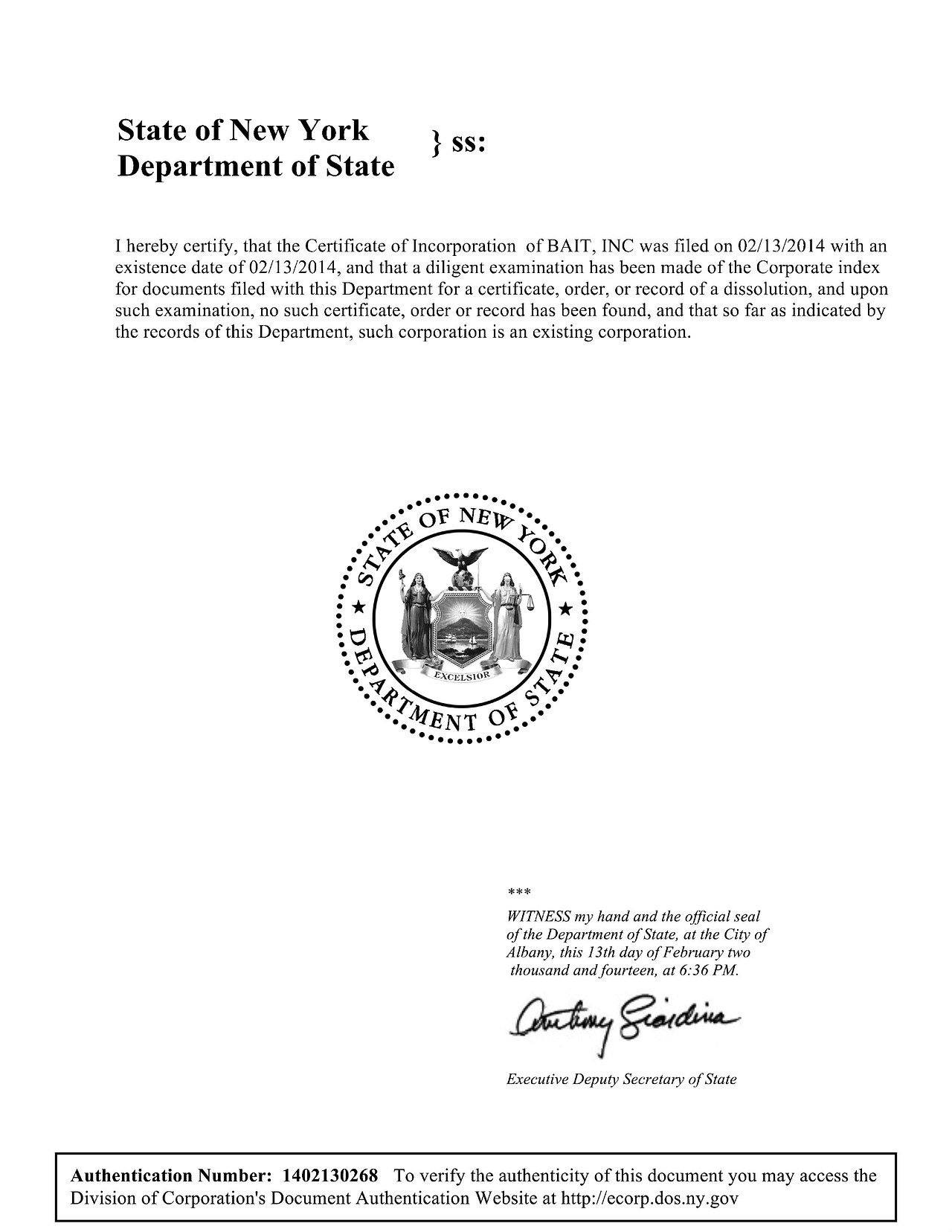
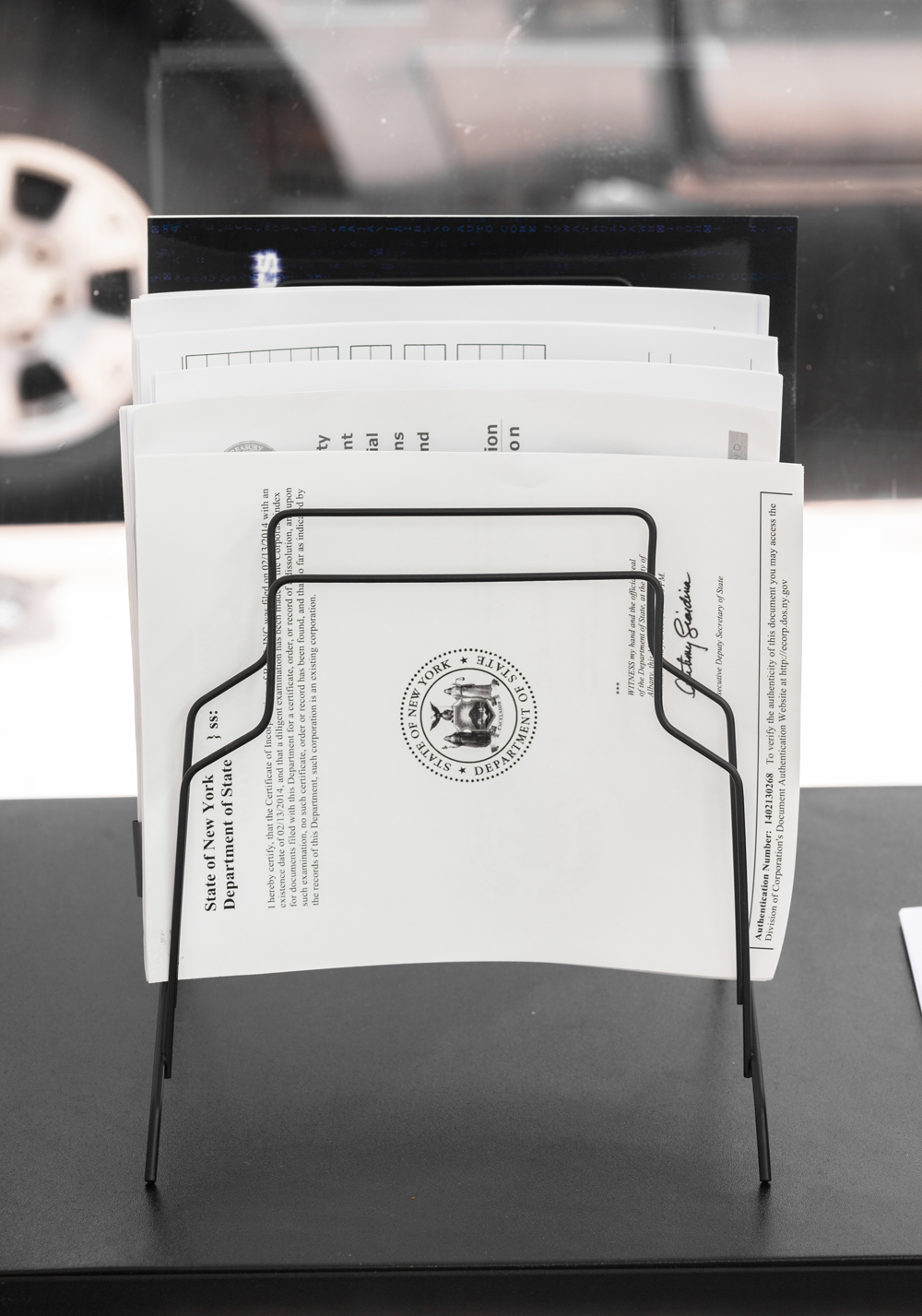


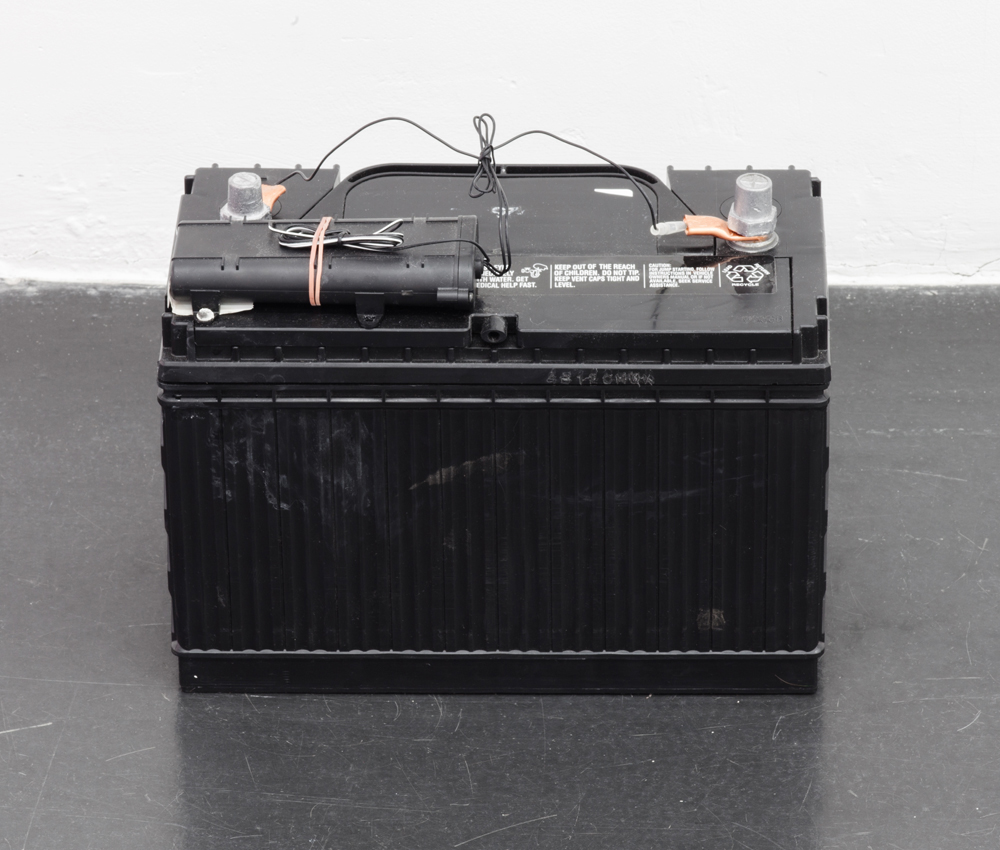
Cameron Rowland
0D20706, 2014
Lojack transmitter, car battery
11 ¾ × 12 ¾ × 6.5 inches (29.85 x 32.39 x 16.51 cm)
Lojack is only available aftermarket. When installed, the transmitter serial number and the VIN are registered in a database at the National Crime Information Center, directly linked to enforcement. Lojack receivers in police cars search the serial number of the transmitter based on the VIN of the missing vehicle. This is an unused, unregistered transmitter, powered, which operates for 200 milliseconds every 10 seconds at 173.075 MHz. The frequency 173.075 MHz is available for stolen vehicle recovery systems on a shared basis with the Federal
Government.
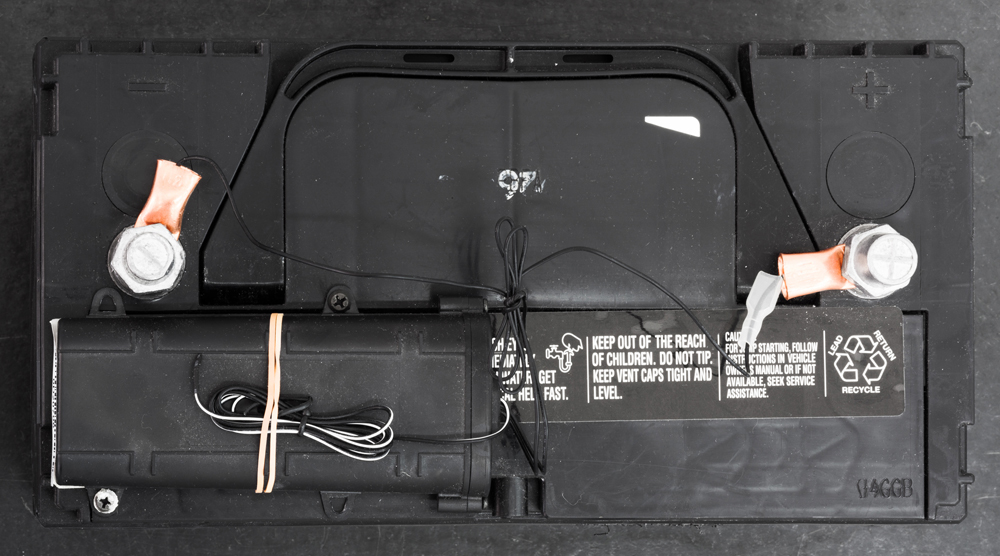
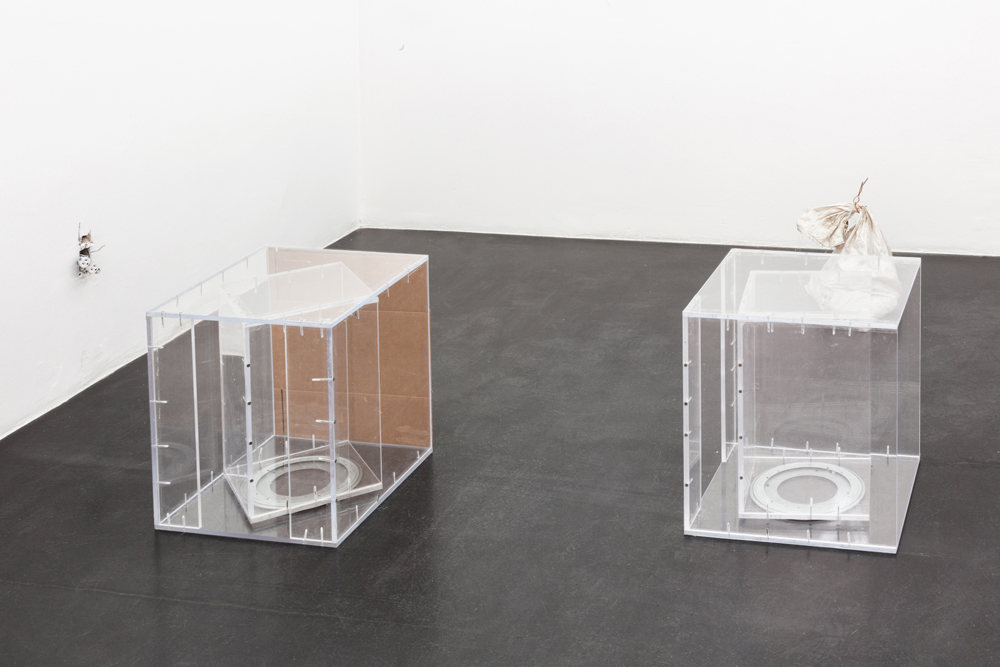
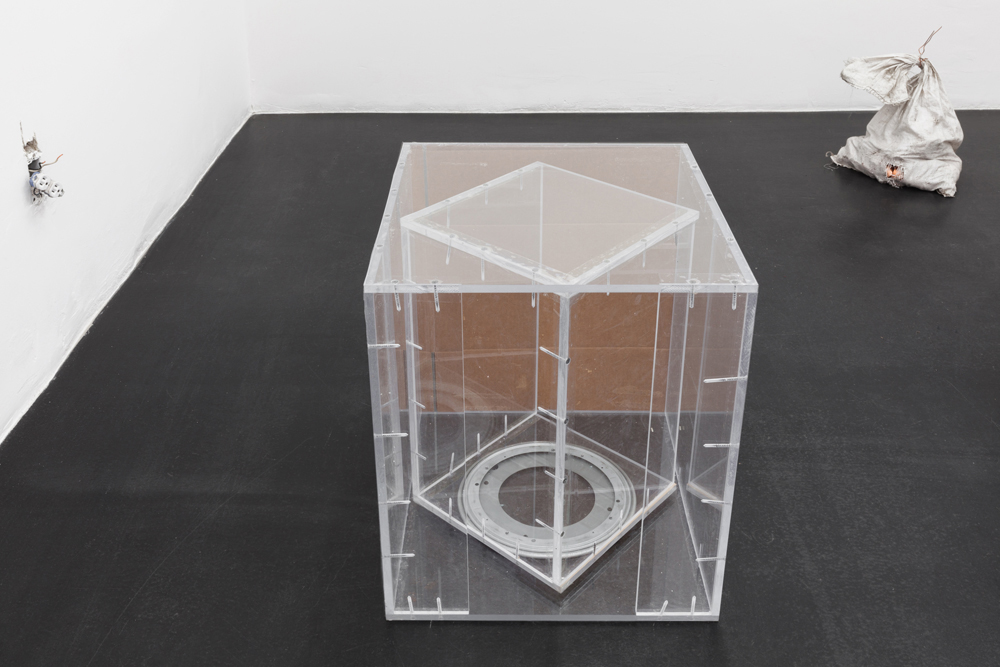
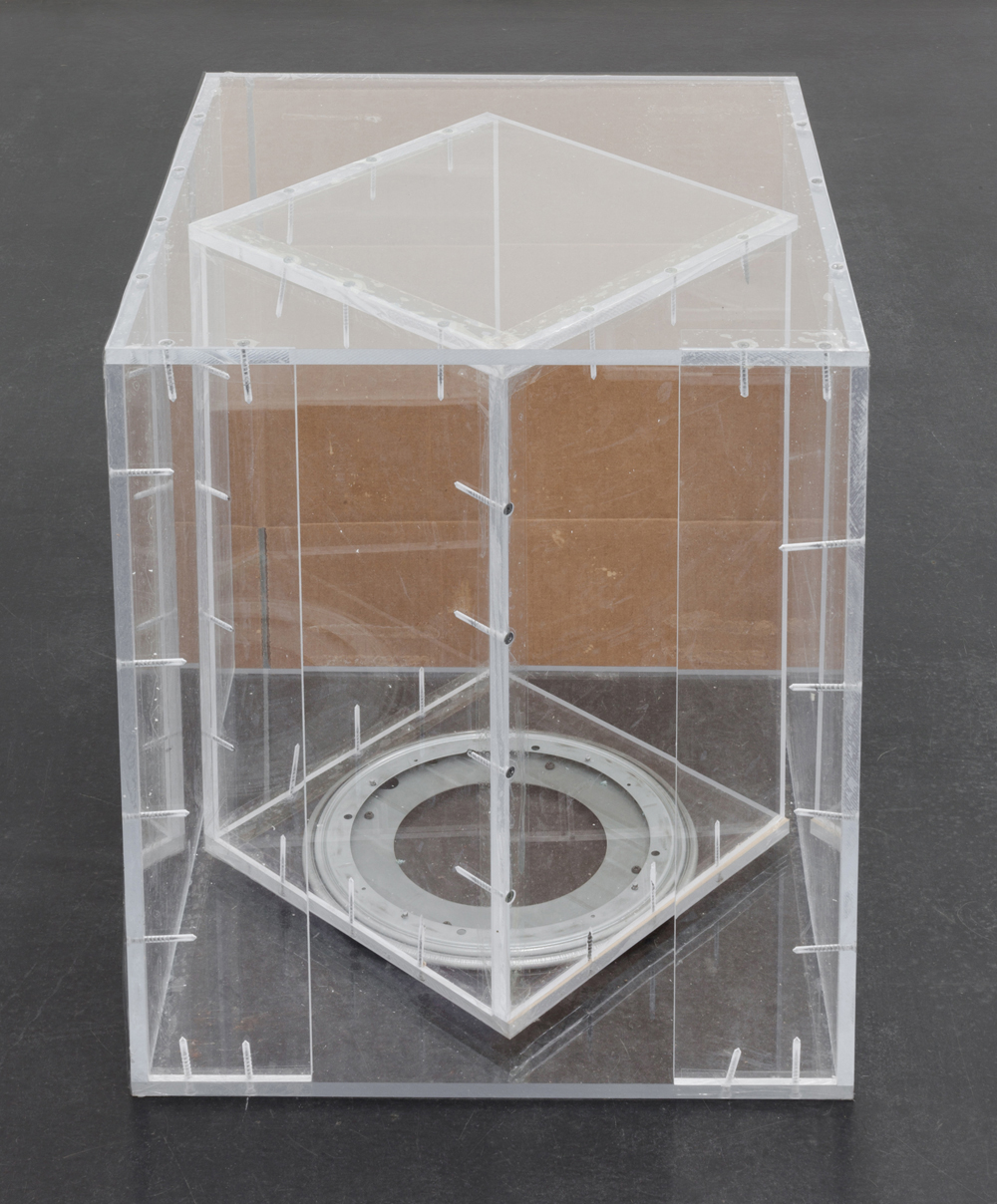
Cameron Rowland
Pass-Thru, 2014
Acrylic, hardware, cardboard, 24-hour rotator disc
23 × 20 × 21 inches (58.42 x 50.80 x 53.34 cm)
In some places, businesses use a pass-thru, to pass cash or goods back and forth; this could be at a bank or a liquor store. The highest standard of pass-thru use bullet proof glass, although this material is far too expensive to be used as a protective measure by those business where it might be most effective. Therein plastic is used in place of bullet proof glass. They are either made by a manufacturer or by the shop owner. A pass-thru is also an open window, when it is cold it may be covered. This Pass-Thru was made by Rowland.
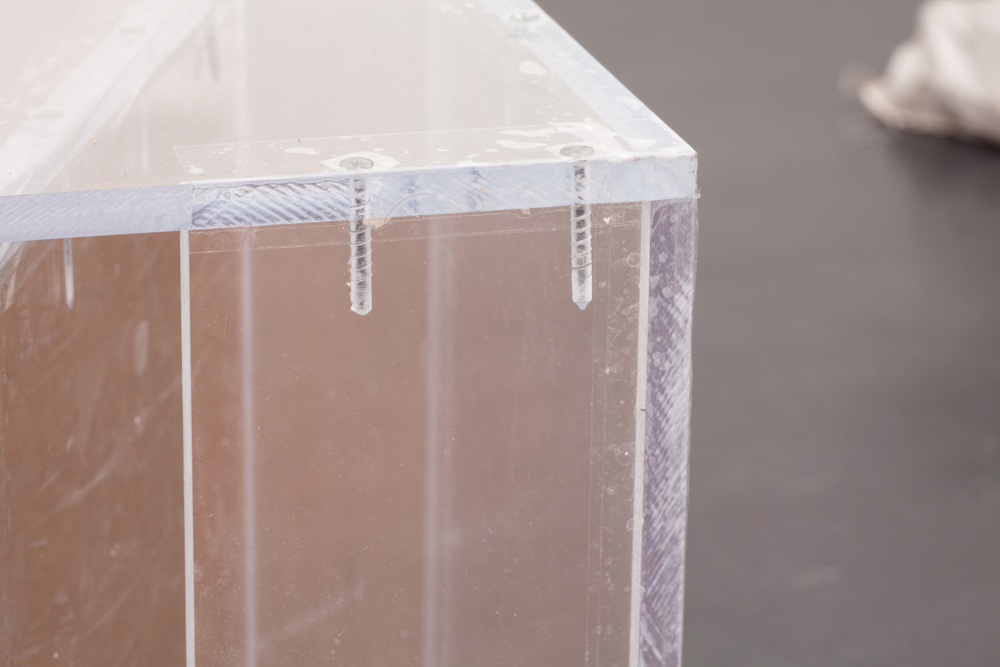
Cameron Rowland
Pass-Thru, 2014
Detail
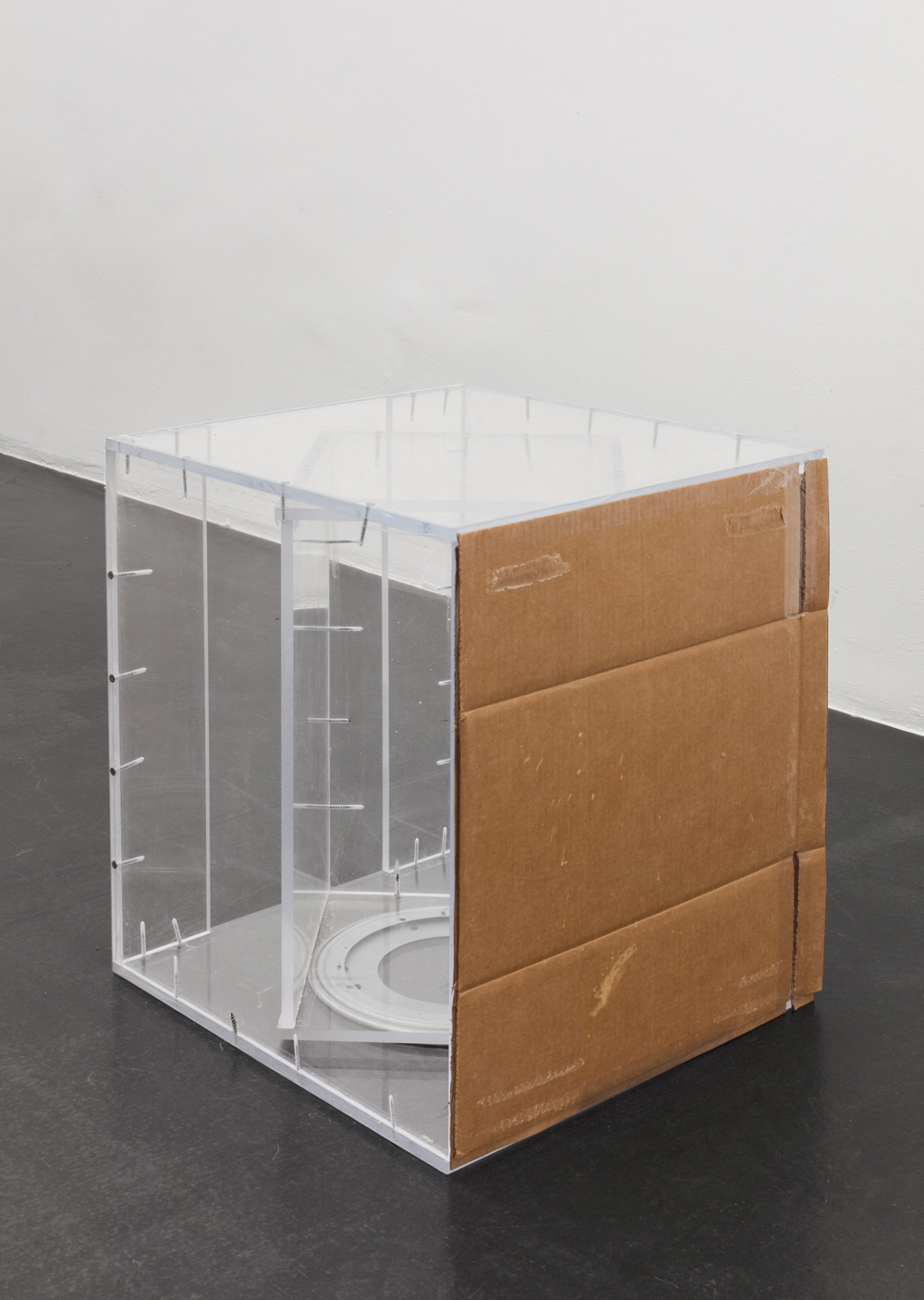
Cameron Rowland
Pass-Thru, 2014
Alternative view
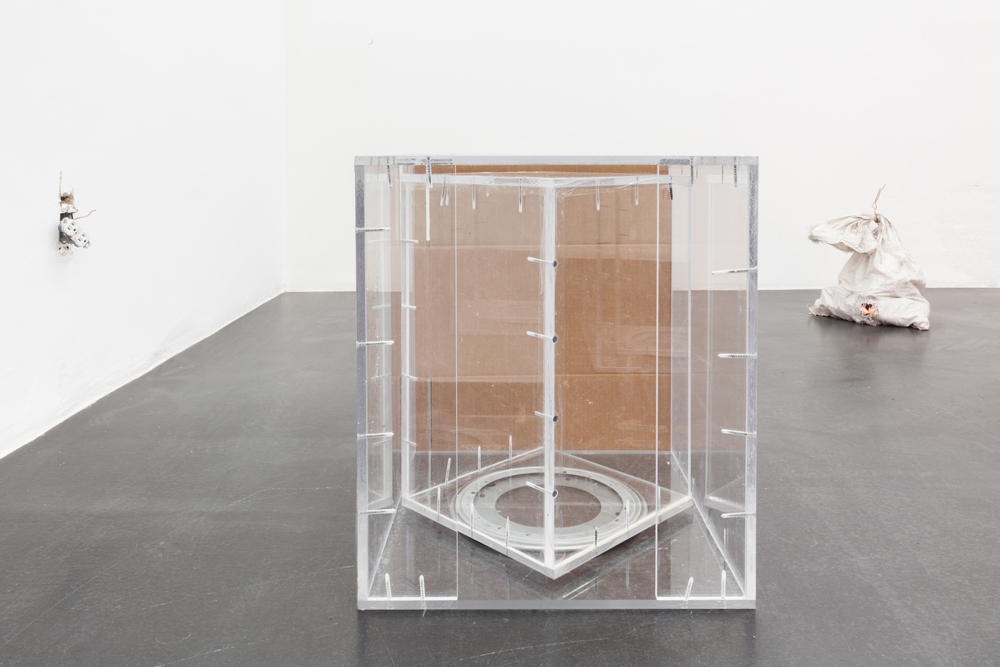
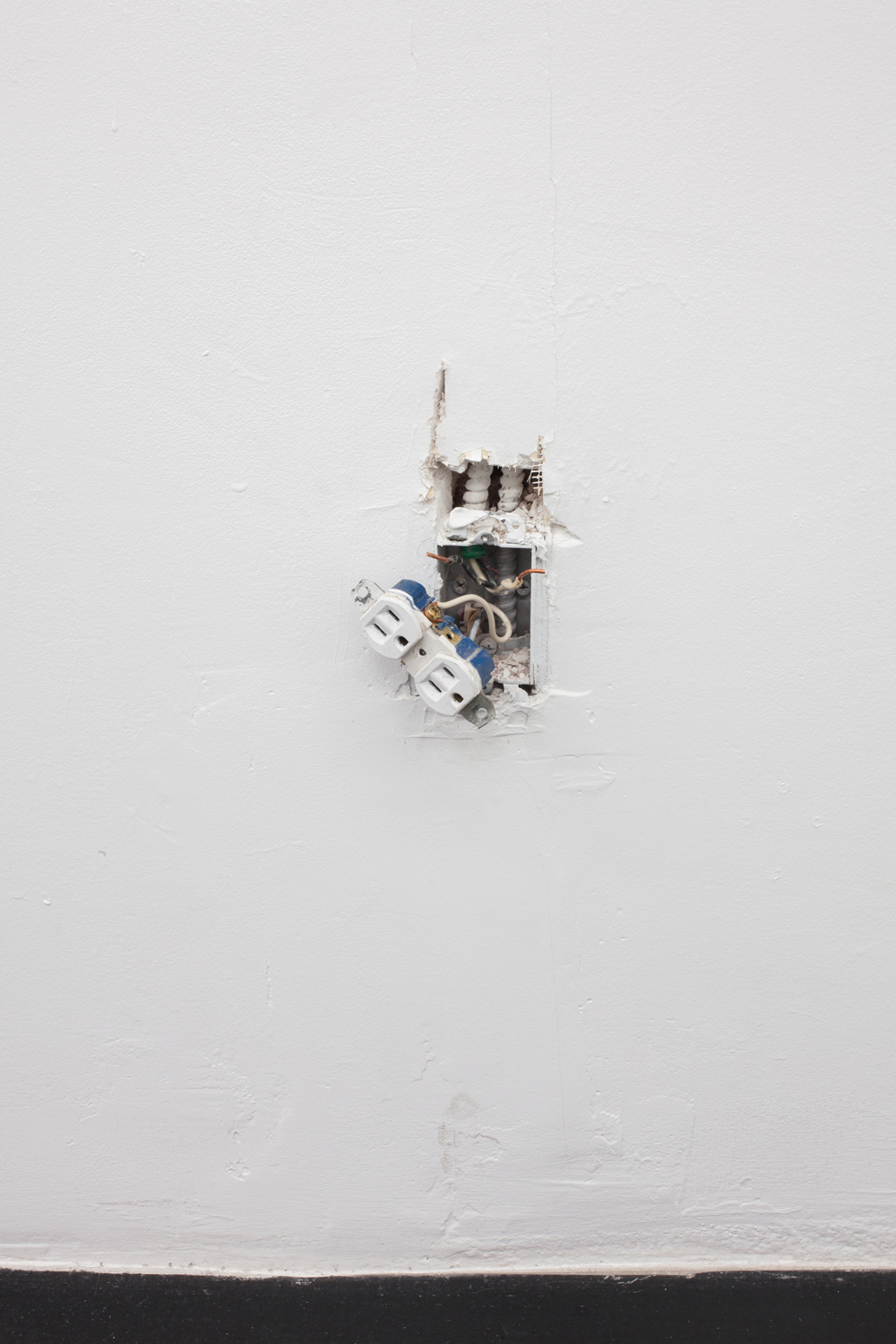
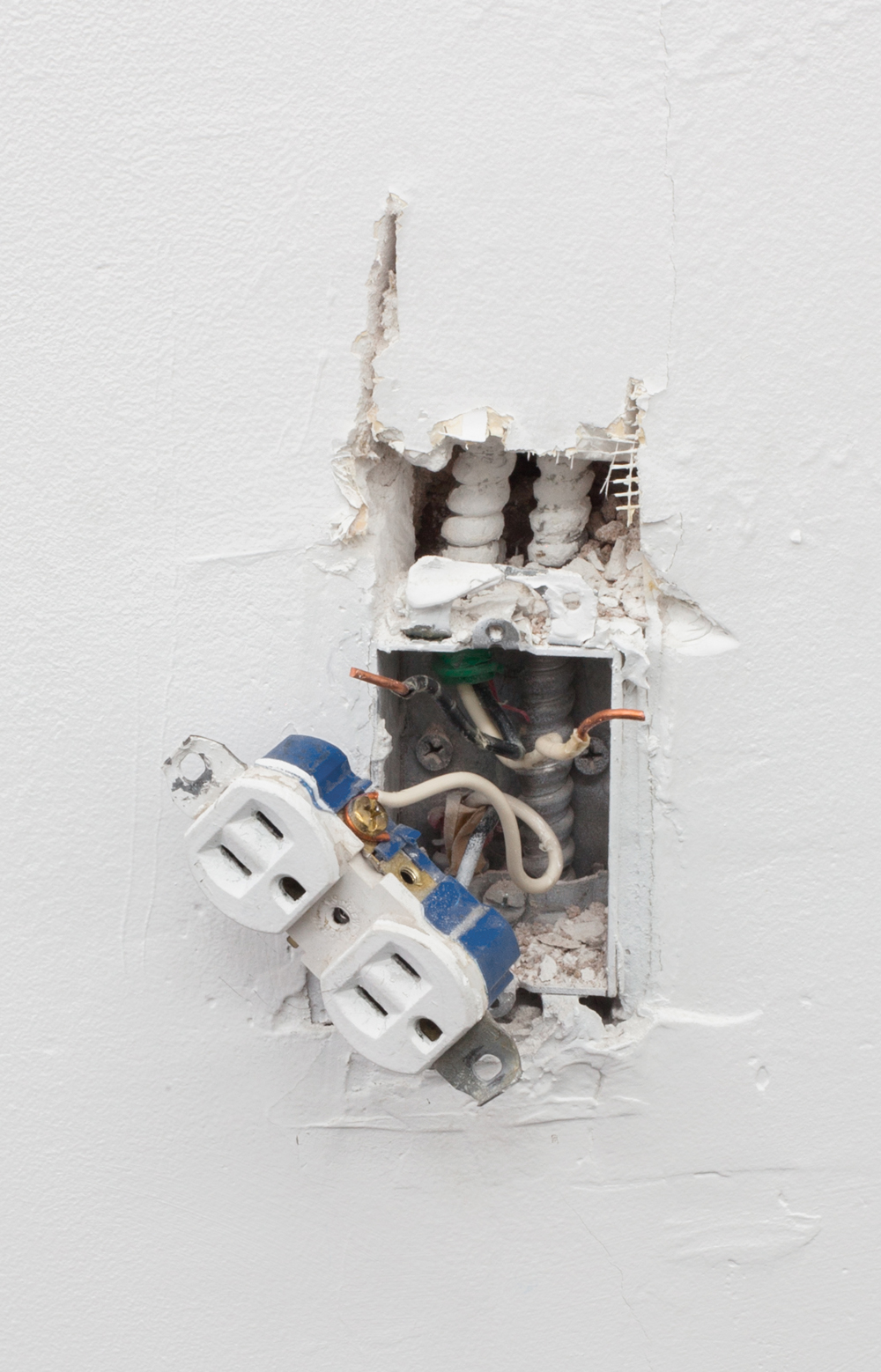
Cameron Rowland
Constituent, 2014
Outlet
Dimensions variable
Edition of 3
Outlets allow the flow of current through cable. When electrical cable is sold as scrap, the outlet is often still connected, but cannot be used and has no value.
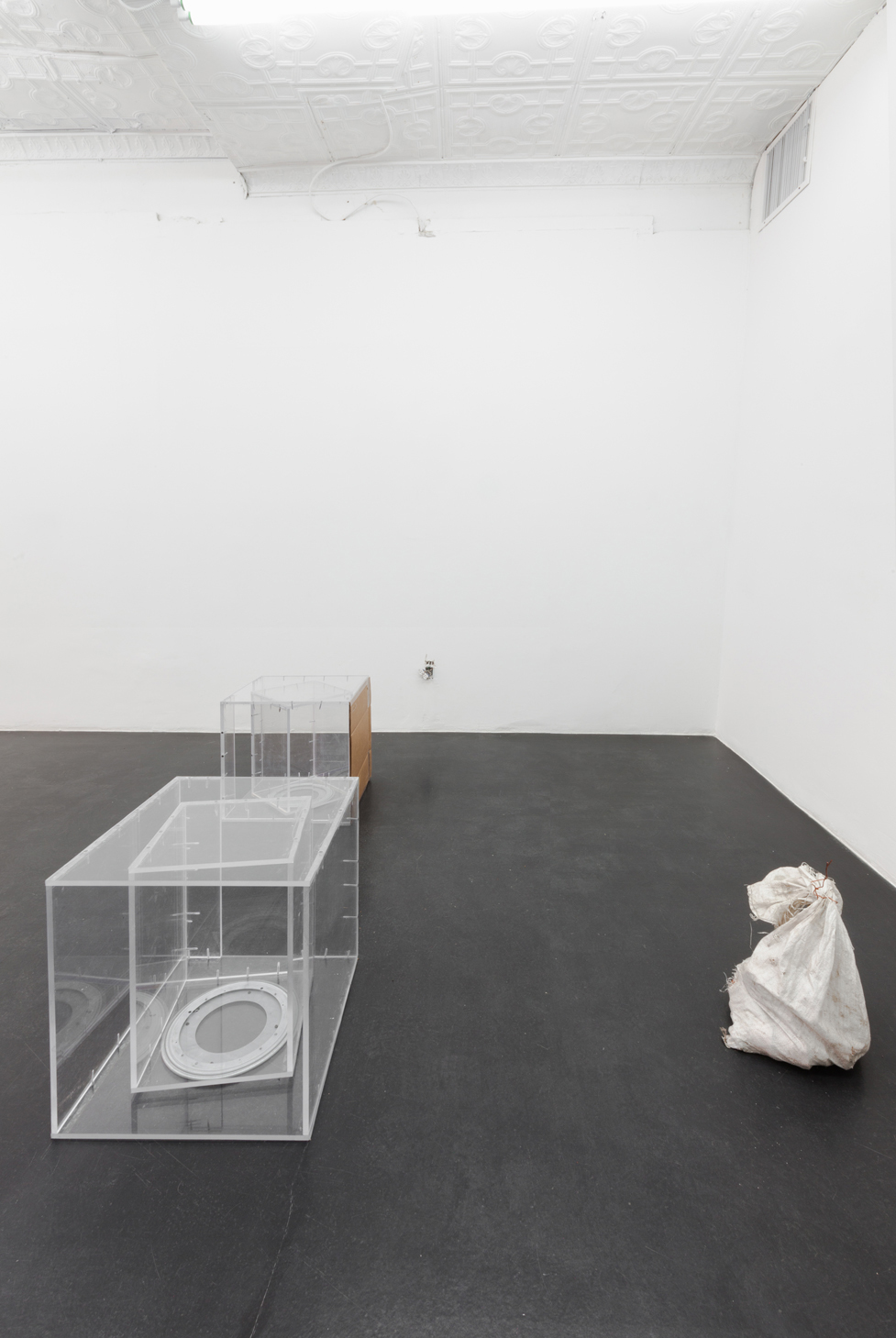
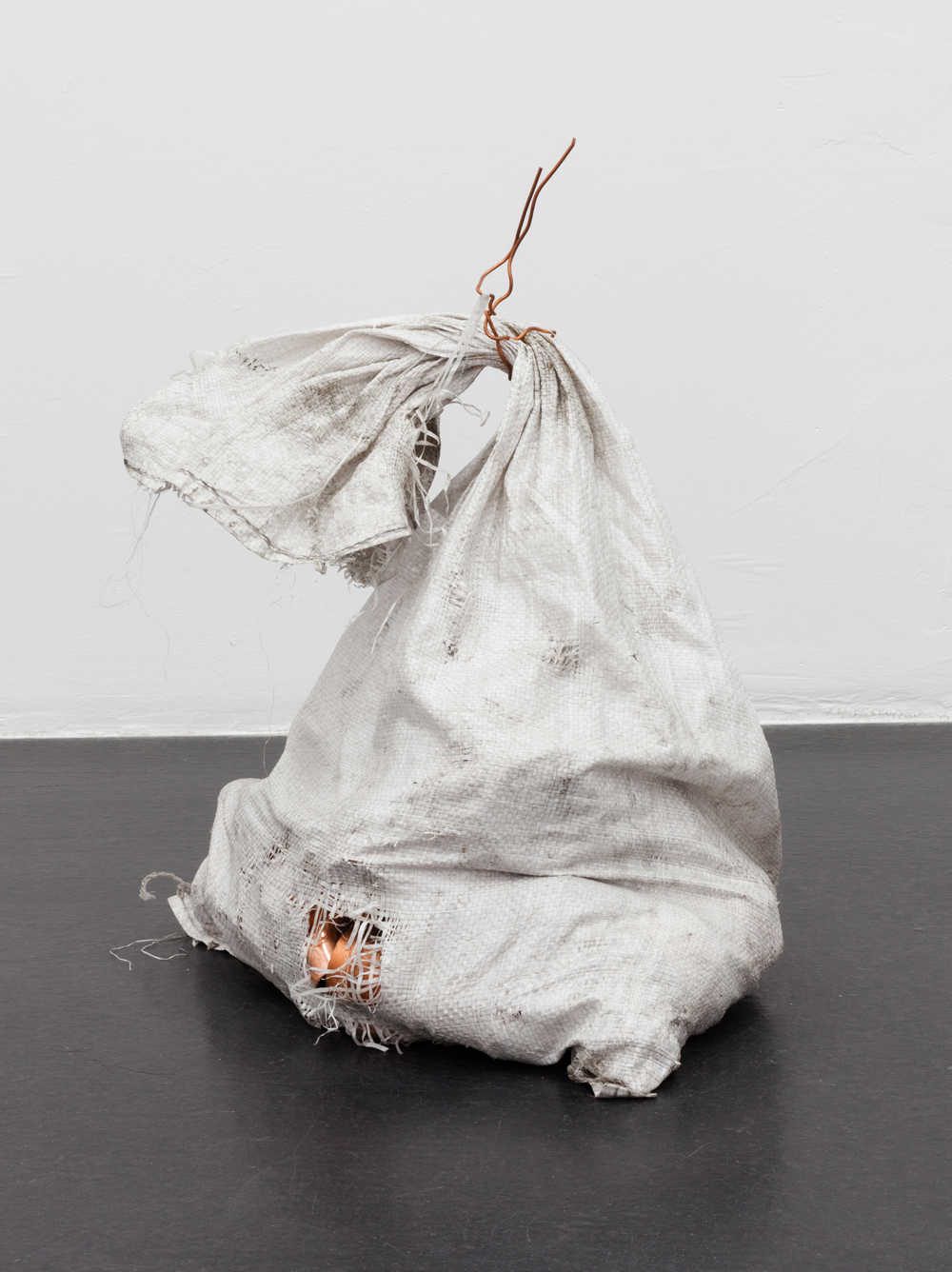
Cameron Rowland
Loot, 2014
Copper fittings, bag
18 ½ × 17 × 15 inches (46.99 x 43.18 x 38.10 cm)
Rental
At some point basic utilities like electricity and water were services controlled by the state, because they relied so heavily on public infrastructure. More and more these flows are valved by private corporations. Someone sold these usable copper fittings in this bag to a scrap yard. They were bought back in the same bag. Copper has a function, its base material has an inherent value.

Cameron Rowland
Loot, 2014
Detail
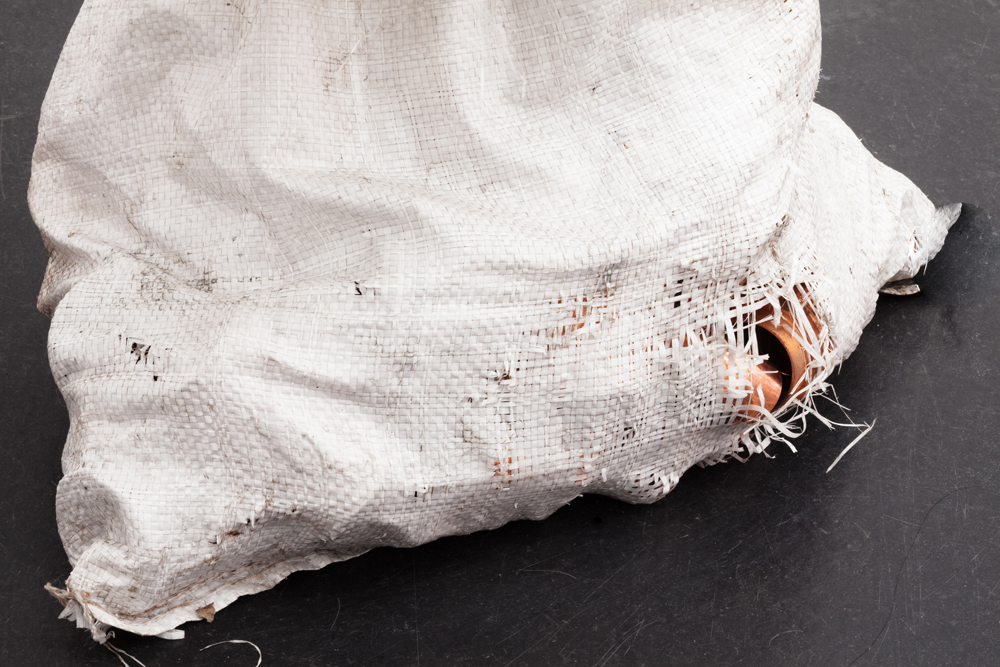
Cameron Rowland
Loot, 2014
Detail
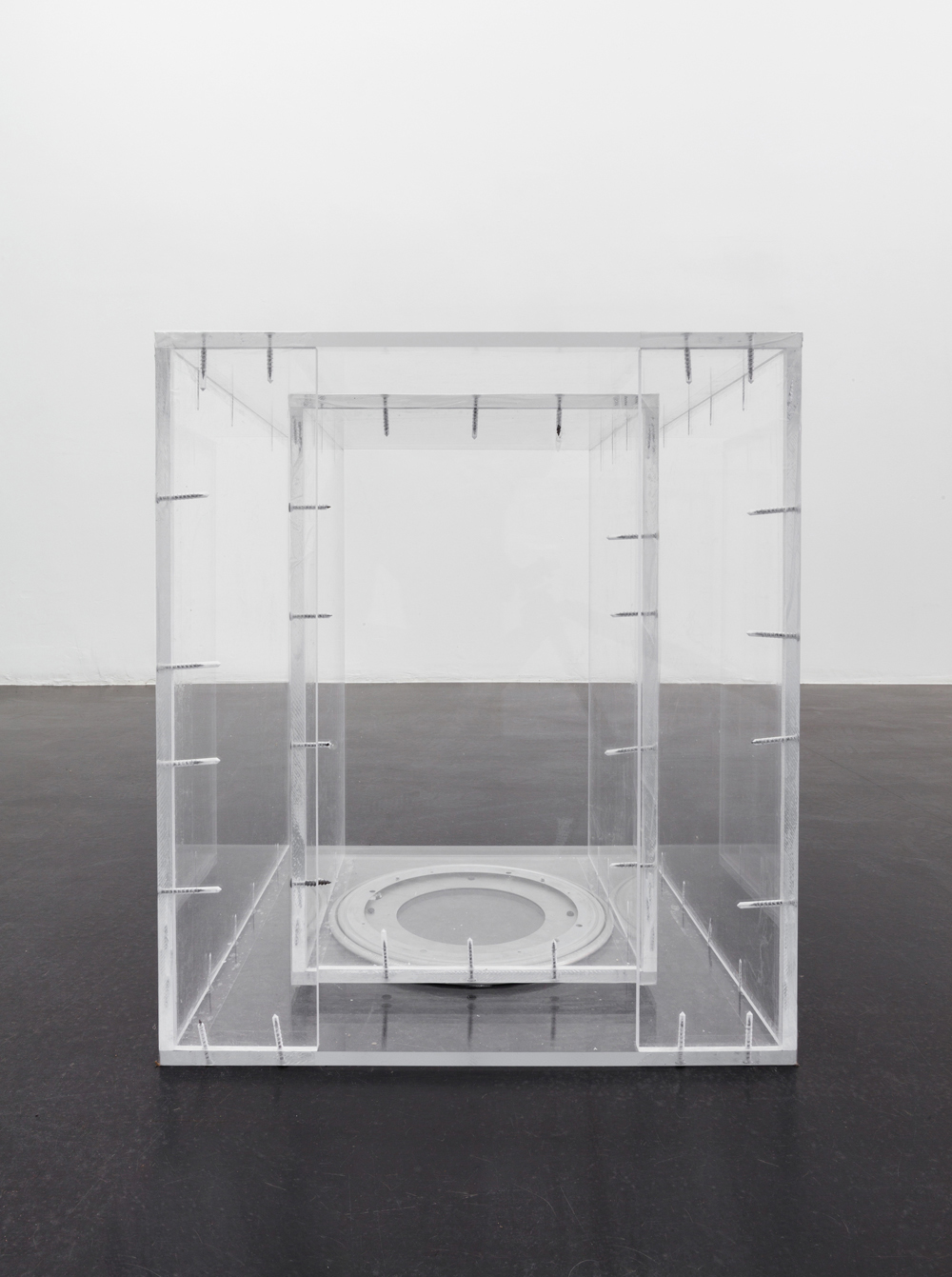
Cameron Rowland
Pass-Thru, 2014
Acrylic, hardware, 24-hour rotator disc
23 × 20 × 21 inches (58.42 x 50.80 x 53.34 cm)
Rental
In some places, businesses use a pass-thru, to pass cash or goods back and forth; this could be at a bank or a liquor store. The highest standard of pass-thru use bullet proof glass, although this material is far too expensive to be used as a protective measure by those business where it might be most effective. Therein plastic is used in place of bullet proof glass. They are either made by a manufacturer or by the shop owner. This Pass-Thru was made by Rowland.
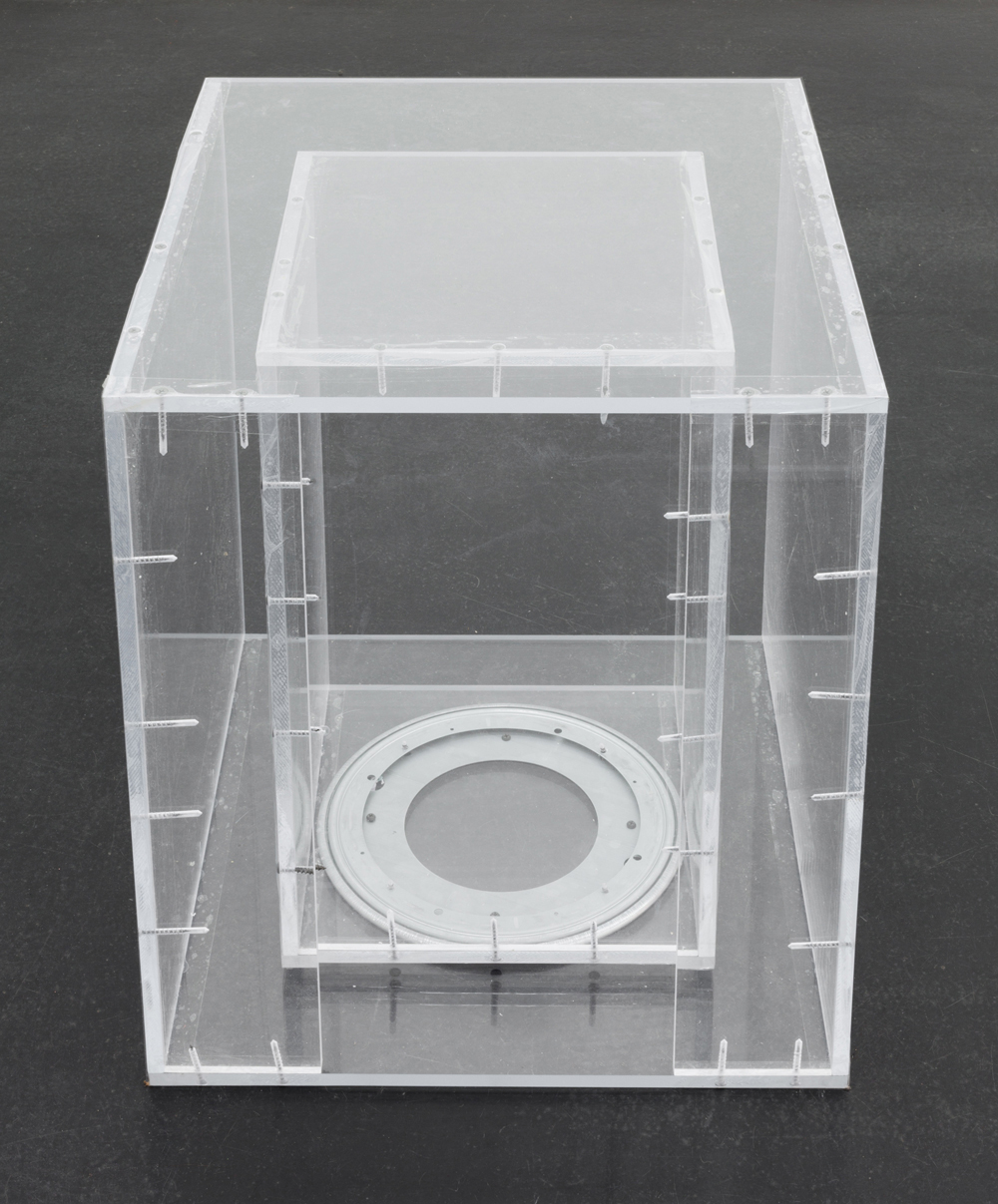
Cameron Rowland
Pass-Thru, 2014
Alternative view

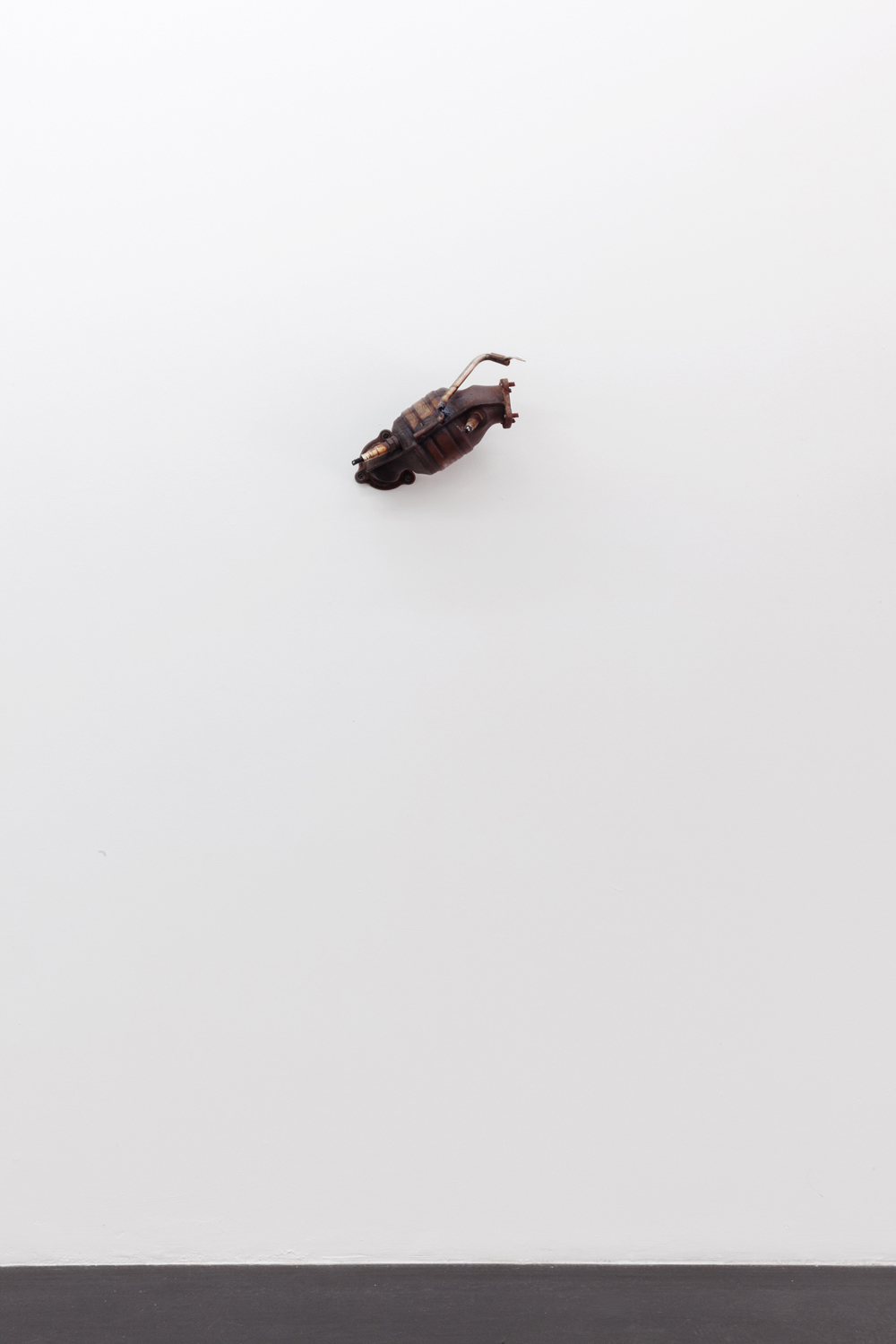
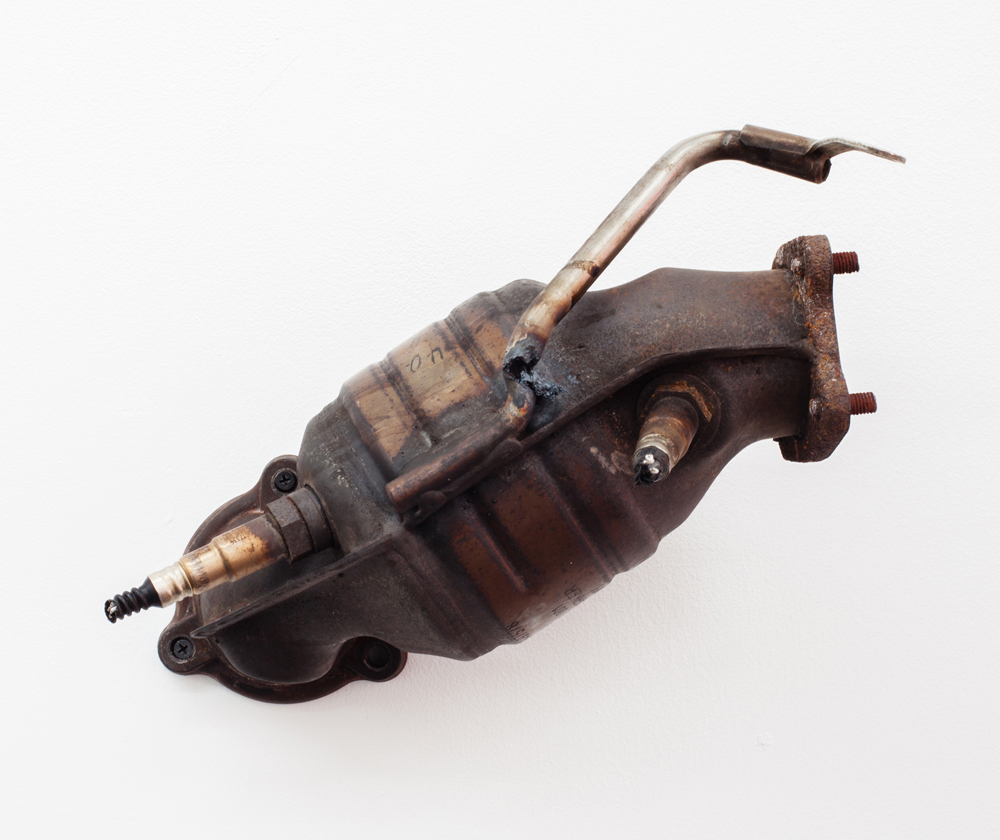
Cameron Rowland
49, 40, 6, 2014
Catalytic converter
7 ½ × 15 × 5 inches (19.05 x 38.10 x 12.70 cm)
Catalytic converters are one of the most valuable scrapped car parts. They contain various combinations of Rhodium, Platinum, and Palladium that filter exhaust. Each model converter has a different value. This Volvo catalytic converter has been quoted at a $40 value by the author of the Book of Numbers and a $6 value at a scrap yard. It was bought for $49.
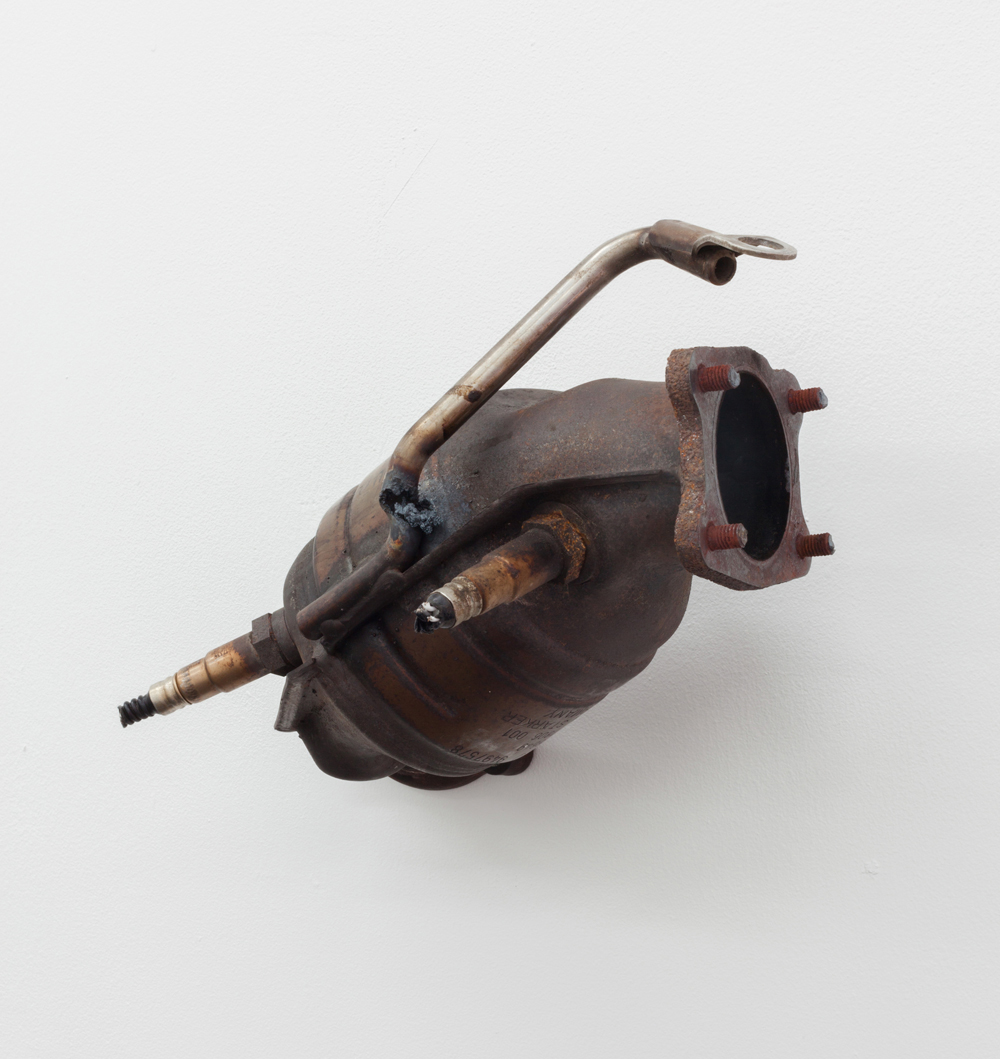
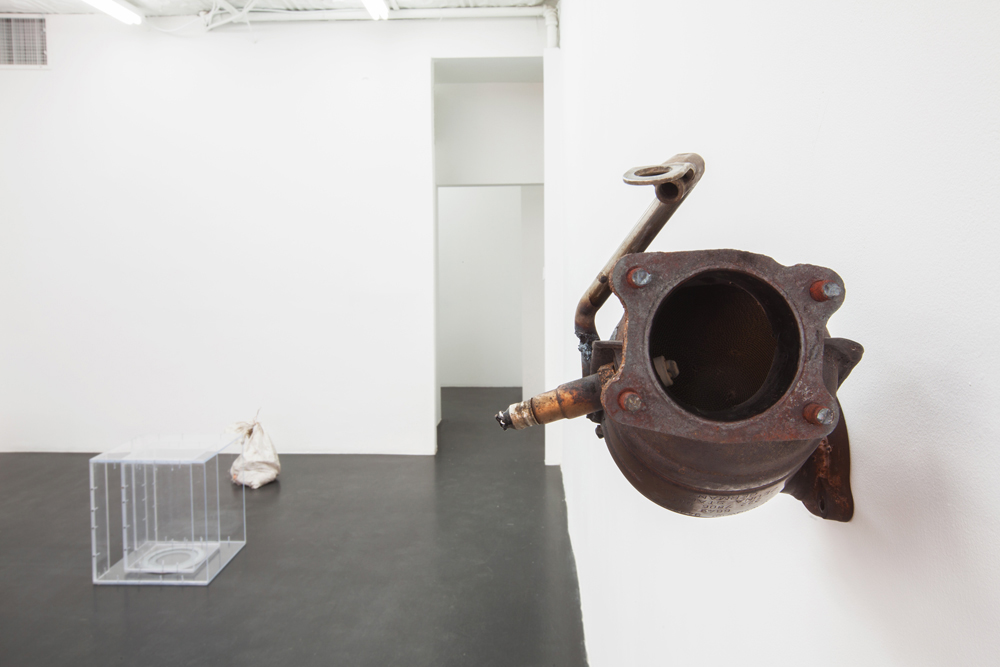
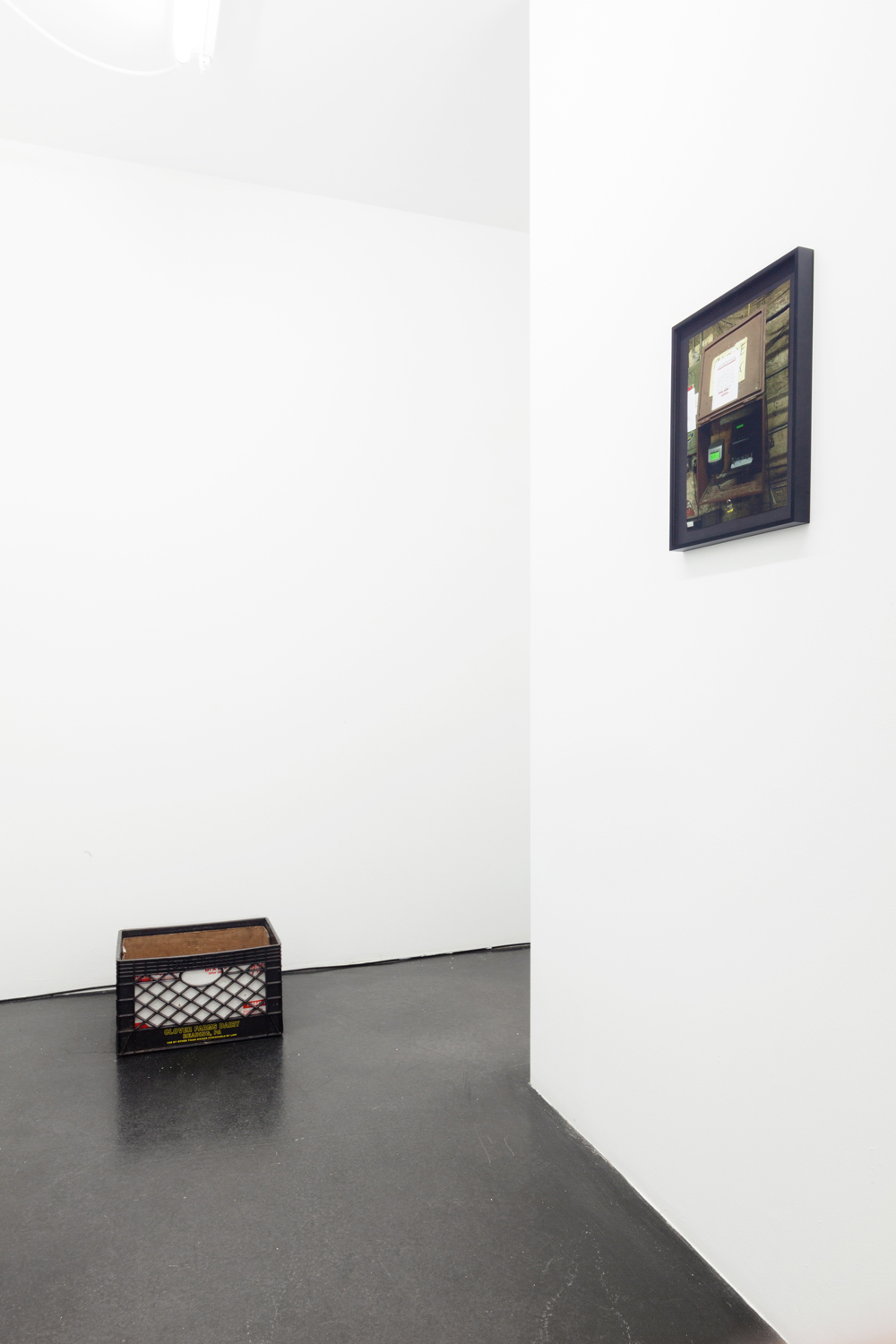
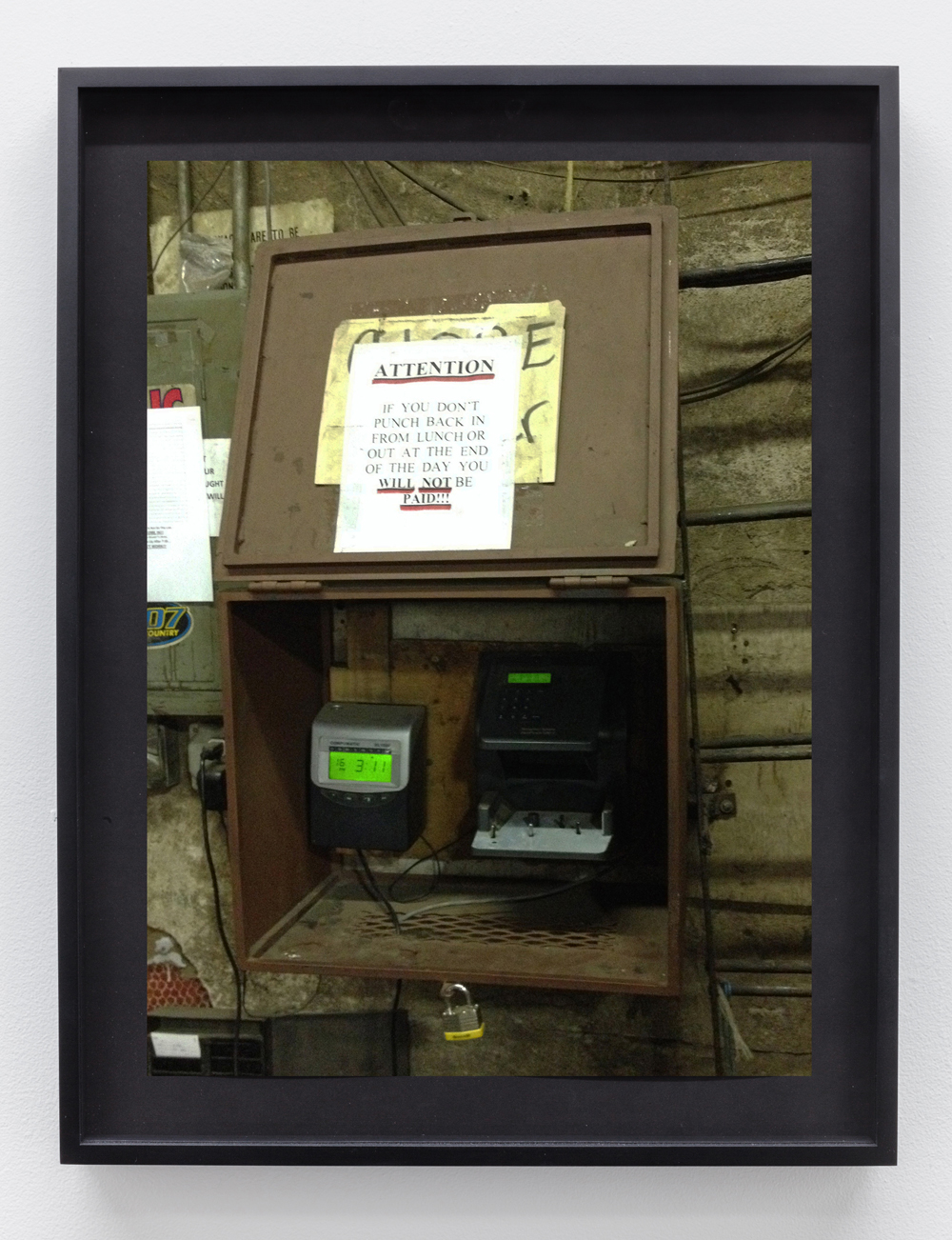
Cameron Rowland
Handpunch, 2014
Photograph
16 ½ × 12 ¾ × 1 ¼ inches framed (41.91 x 32.39 x 3.18 cm) Edition of 5
In businesses where employees’ time is one of the most valuable assets, the Handpunch time clock secures this time. Manufactured by Schlage (the American lock company) the Handpunch uses a biometric reading of employees right hand to inhibit false clock-ins and payment for false hours. Biometric recognition was developed to replace photography as a superior form of criminal indexing.
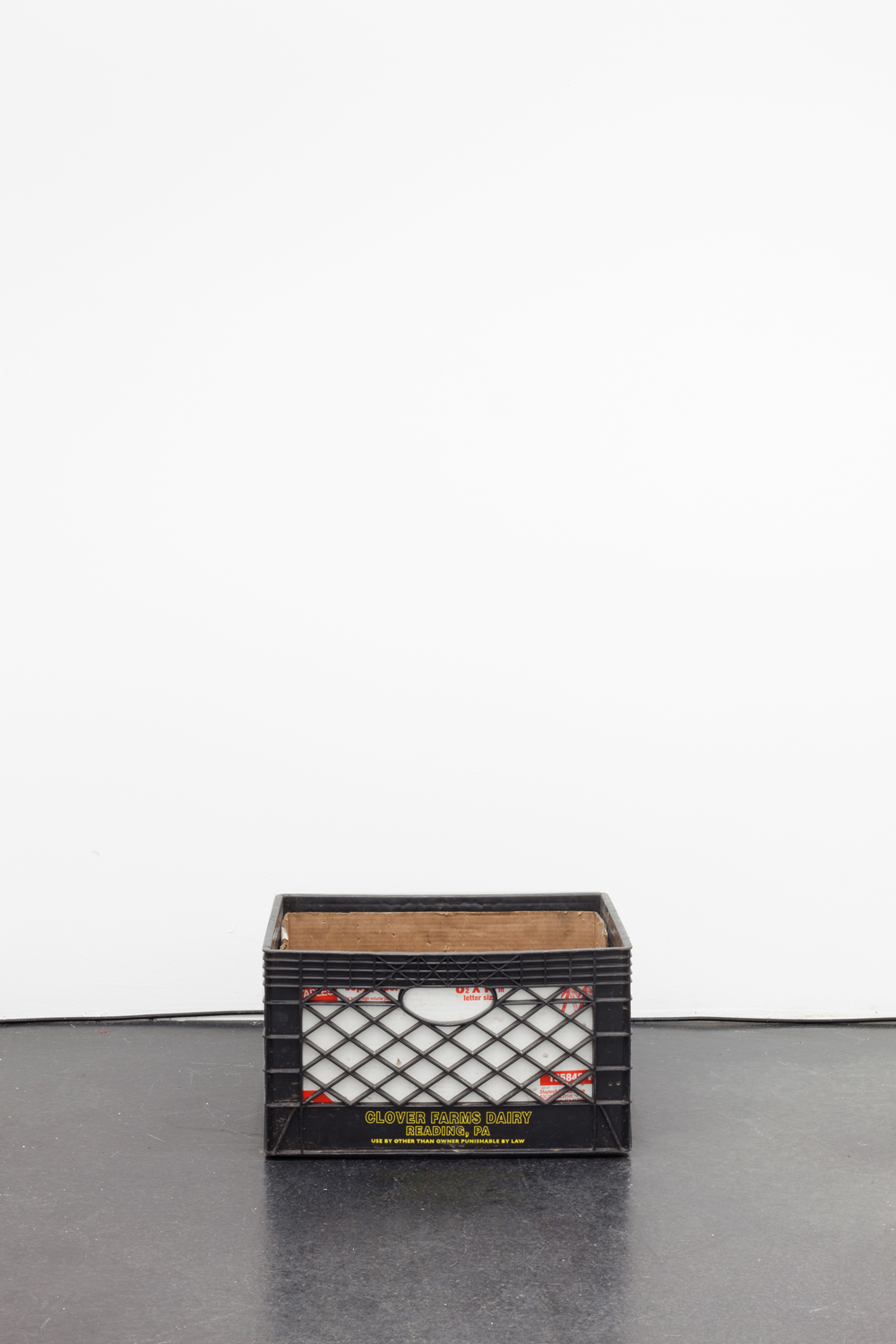
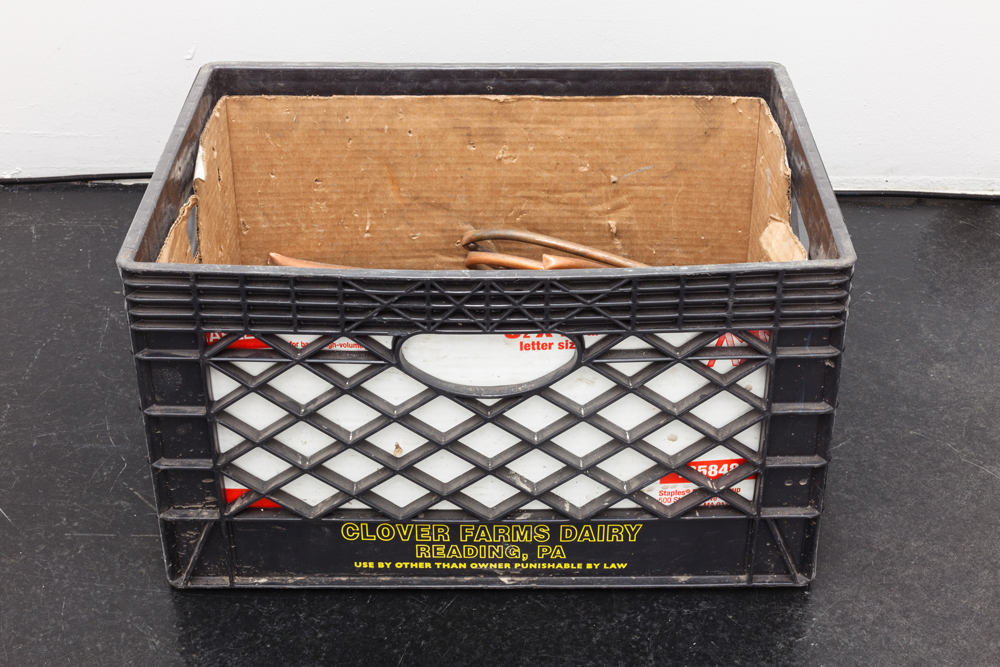
Cameron Rowland
Loot, 2014
Cut copper tube, cardboard box, crate
11 × 18 ½ × 13 inches (27.94 x 46.99 x 33.02 cm)
Rental
At some point basic utilities like electricity and water were services controlled by the state, because they relied so heavily on public infrastructure. More and more these flows are valved by private corporations. When abandoned buildings are broken into and stripped of their copper piping, it is sold to scrap yards, where it is cut down. This cut copper was bought from a scrap yard. Copper has a function, its base material has an inherent value.
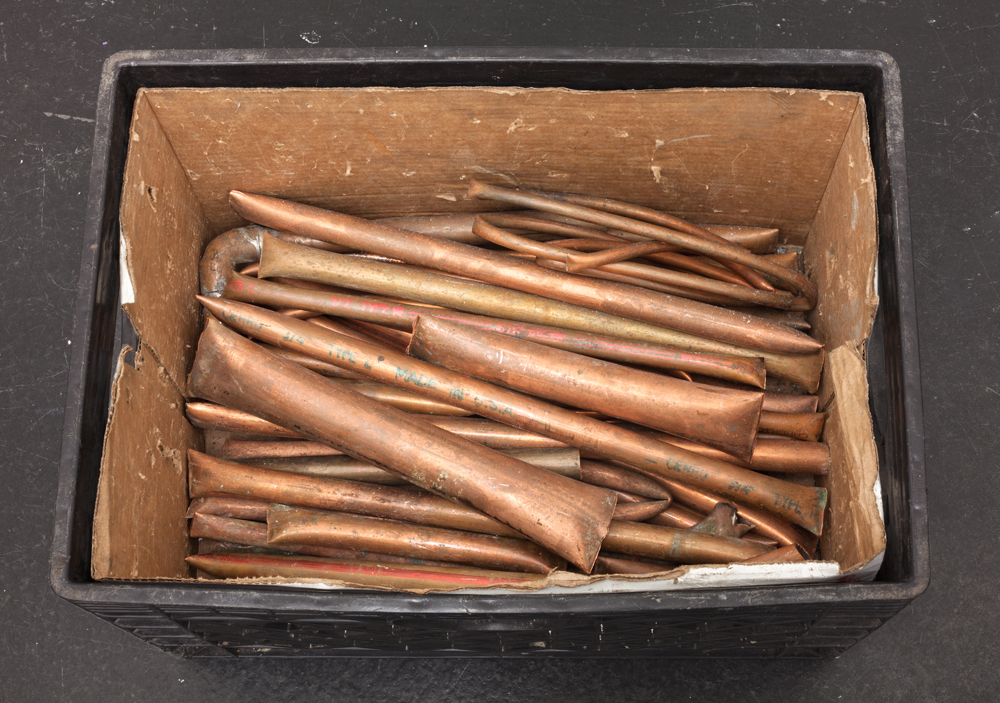
Cameron Rowland
Loot, 2014
Alternative view